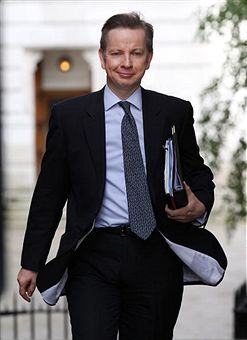 Last week Reform published
its 2011 scorecard of the
coalition government’s public service reform programme. Following on from articles on the health and welfare reforms, Dale Bassett, Research Director at Reform, explains why the coalition’s
school reforms are not as radical as they appear.
Last week Reform published
its 2011 scorecard of the
coalition government’s public service reform programme. Following on from articles on the health and welfare reforms, Dale Bassett, Research Director at Reform, explains why the coalition’s
school reforms are not as radical as they appear.
The government is pursuing a dual agenda in education reform, altering structures (to increase decentralisation and autonomy) and centralising standards (to increase rigour and central
accountability). Key government reforms include giving all schools the right to convert to academy status and allowing charities and groups of parents or teachers to establish new, independent,
state-funded schools with the same freedoms as academies. Yet key features of the regulated school system remain. The government still refuses to fund parental choice into the for-profit
sector, maintaining the divide between an independent sector and a state sector under considerable regulation. November’s Schools White Paper continued central regulation of teacher training, recruitment and supply. It maintained national pay
bargaining for teachers and the central accreditation of headteachers.
While central control is being abolished in some areas, in others it is being strengthened, for example through a re-written National Curriculum and increased powers for central government to take
over “failing” state schools. The schools admissions code remains in place although the government has pledged to “simplify” it. The attempts to increase the number of
academies and free schools are halfway-house reforms. Like grant maintained schools before them, these peripheral reforms fail to alter the central control and regulation that governs the main
schools system, and are therefore likely to be easily reversed. There is a basic inconsistency between a policy that seeks to free academies and free schools from the National Curriculum, yet
strengthen it for the rest of state schools.
Although academies are free to deviate from them, the existence of national pay and conditions for teachers hampers headteachers’ freedom to reward high performance or additional commitments,
and can make it more difficult to hold them to account for their performance. Many teachers feel there is a cultural entitlement to an annual increase in salary, irrespective of performance.
The free schools initiative is intended to raise standards in all schools through competition, but this systemic change can only happen if free schools are established on a sufficient scale.
Profit-making companies should be allowed to inject their expertise and capital into the system to significantly increase the number of new schools. The profit motive is also a useful incentive to
encourage good schools to expand.
The increase in the number of academies will mean that more schools are able to operate independent of local authorities (often achieving better value for money by directly procuring necessary
central services). However the Schools White Paper proposed a new “strategic role” for local authorities, encouraging them to “ensure fair access”, “stand up for the
interests of parents and children”, “develop their own school improvement strategies” and “promot[e] a good supply of strong schools”. This is inconsistent with
a flexible school system that responds to demand, and with making parents solely and directly accountable for schools’ performance.
The wasteful Building Schools for the Future programme has been halted; other capital spending is being reviewed. The government has, however, frozen the schools current budget in real terms. This
ring-fencing is unjustifiable given that per-pupil funding is double in real terms the level of a decade ago, and given the significant inefficiency that has been identified in the schools system.
Despite a reduction in bureaucracy and an increase in teachers’ autonomy, the fundamental assumption that government can and should drive improvement in the quality of teaching continues to
underpin the system. The bureaucratic structure that fails to achieve this should be abolished, and schools should be held accountable for improving the quality of their teaching.
Dale Bassett
Reforming schools: choice and autonomy






Comments